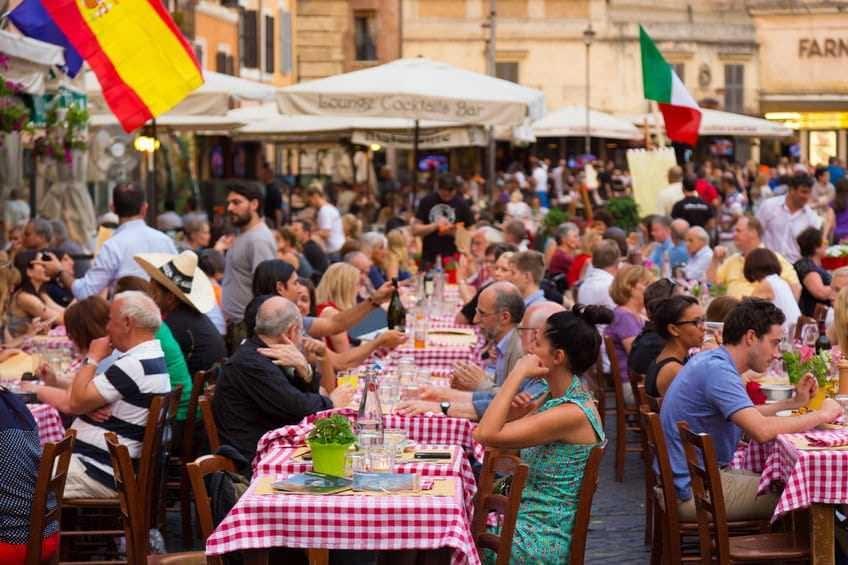Want to Restore Democracy? Grab a Fork
Research suggests a European diet precedes the advent of a middle class, and middle class means democracy.
New research from the Laboratory for Comparative Social Research (LCSR) of the Higher School of Economics (HSE) in Russia says that if humanity wants to restore democracy, it had better shift the emphasis on nutrition rather than income growth or liberalization of trade.
The working paper titled “A Recipe for the Democracy: The Spread of the European Diet and Political Change” tried to get to the bottom of the whole intriguing question of how food and democracy relate.
Using a comparative study with data from 157 countries, the research found that a diet rich in dairy products, olive oil, protein, confections and alcohol — among others — better aligns with democracy.
The last thing a malnutritioned population has in mind is political activism.
No, it does not mean that consuming this kind of comestibles arbitrarily makes people more democratic. What the paper concluded pointed to was an indirect connection between democracy and diet. Simply put, when people eat diverse, expensive and superior food items instead of only bread and cereals on a regular basis, it is a strong signal that democracy is well on its way.
“The spread of a ‘European diet’ — the diet with historically unprecedented high proportion of animal proteins in its daily calorie intake — is considered to be a proxy for the middle-class expansion,” Andrey Shcherbak, senior research fellow in the Laboratory for Comparative Social Research of the Higher School of Economics in St. Petersburg, Russia told Olive Oil Times.
“A large middle class is a structural prerequisite for a transition to democracy and successful consolidation of it become more likely under a middle class,” the researcher said.
But how could diet, a European type of diet in this case, precede the advent of middle class, and in turn, democracy? Shcherbak urged us to look back in history, which evidences how the world’s top olive oil producers bore democracy.

“Greece and Italy, two of the largest olive oil producers and consumers, are the birthplaces of democracy and republic. This is not a coincidence. Olive oil in Greece and Italy was an important source of fats and other valuable nutrients for all people and a very commercially attractive trade item. I believe these factors contributed to the emergence of a large middle class in ancient Greek and ancient Roman societies,” says the Russian researcher, who goes so far as to say that maybe olive oil was one of the reasons why the political notions of democracy and republic sprang from these areas.
But, despite the symbolisms the widespread use of olive oil in the birthplaces of Western-type democracy might display, there are other reasons why nutrition might precede democracy and not the other way round.
For a start, Shcherbak said that people who have permanent access to prestigious items like animal and dairy products are existentially secure. They don’t need to agonize over daily survival, and are free to embrace emancipative values. This makes it more likely for them to stand up for individual rights as compared to a society where people just scrape by.
Then, there is a social-political effect. Food autonomy brings on political autonomy. “The last thing a malnutritioned population has in mind is political activism,” reasoned Shcherbak. “Poor and malnourished people can be easily manipulated. The relative cost of their vote is very low for them. In some countries, we observe large patronage and clientelist networks that distribute food for votes among the poor — mostly cheap, carbohydrate-rich items.”
Also, optimal nutrition equals good health. “An enriched diet plays a catalytic role in the formation of 29 vital organs including the central nervous system, which determines cognitive capacities,” notes the study. “Look at children’s educational performance,” Shcherbak stressed. “Poverty and malnutrition significantly reduce it. Generally, healthier populations tend to be better educated and more active in terms of political engagement.”
It is worthy to be mentioned that LCSR’s study poses new concerns for the form of the needed assistance to developing countries. “If good nutrition is key to establishing democracy, then perhaps humanitarian aid may be preferable to financial assistance for poorer countries,” was a key finding of the October 2016 research.








